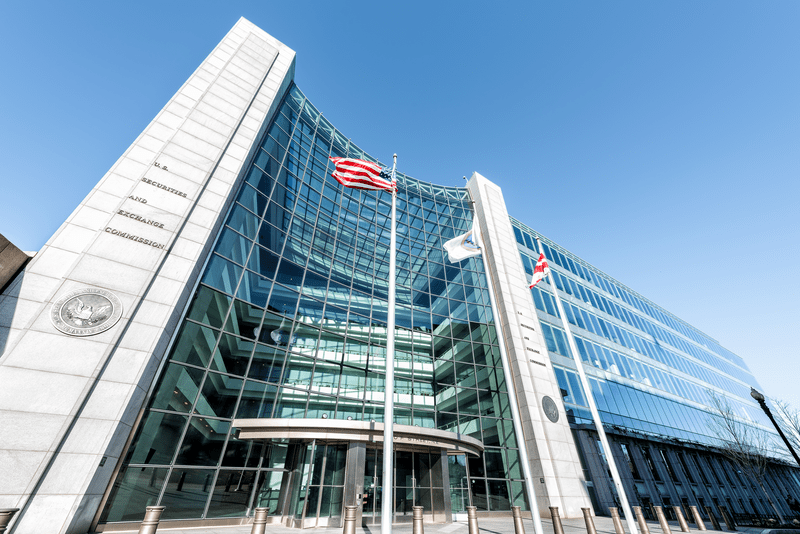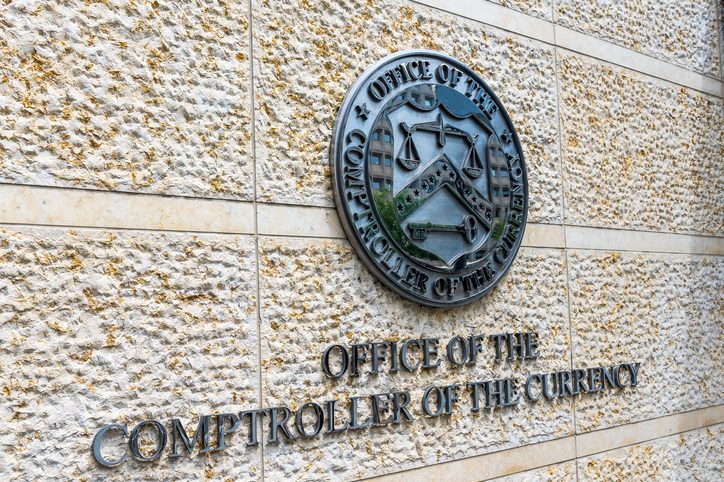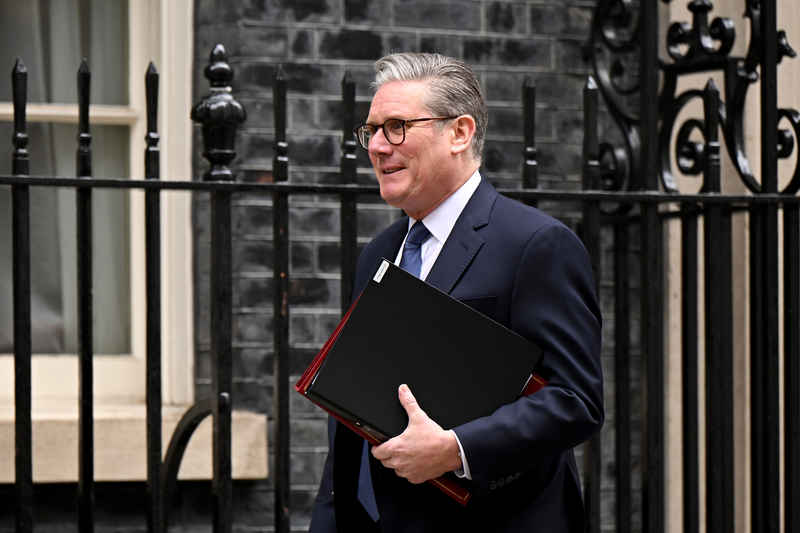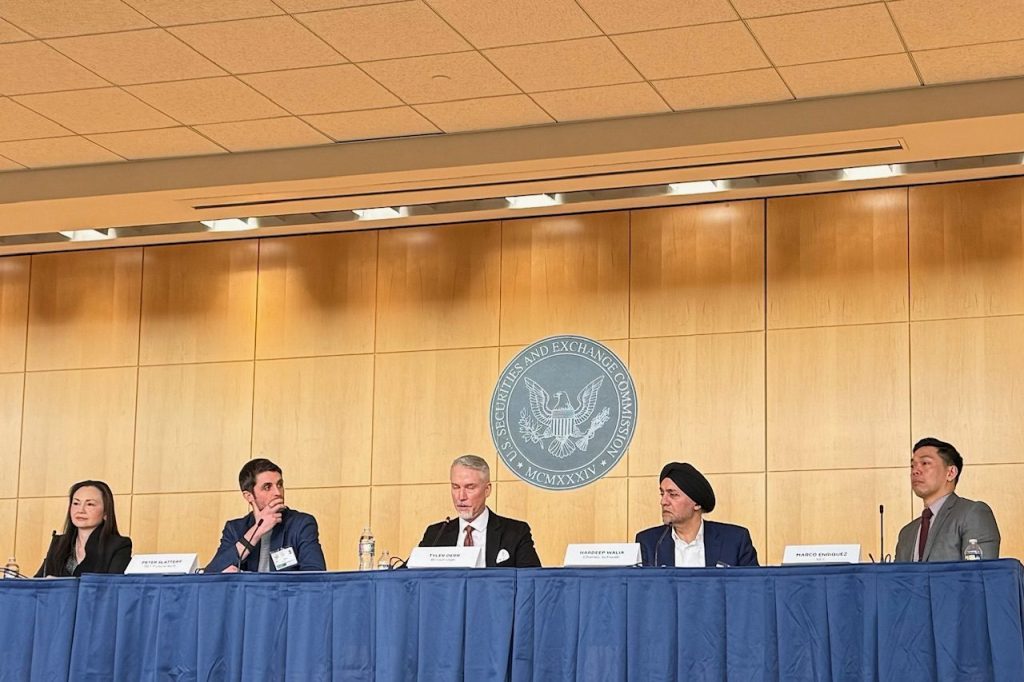The UK’s Economic Secretary to the Treasury, Bim Afolami, has said that in just six months time there will be regulations in place for stablecoins and crypto staking.
Speaking at an event in London hosted by Coinbase, Afolani said the government was “pushing very hard” for legislation.
In October 2023 the FCA introduced the cryptoasset financial promotions regime. Staking has been restricted by some exchanges, including Binance, which also stopped accepting new UK customers.

“We were encouraged to hear his commitment to pass secondary legislation on staking in the next six months. Staking protocols are the backbone of the technological infrastructure underpinning the entire crypto economy,” Coinbase said on X. “We look forward to further building London’s future as a digitial asset hub.”
A general election is due to take place towards the end of this year, ramping up pressure for clearer policies from the incumbent Conservative Party.
Kansas bank falls victim to CEO pig butchering
A Kansas bank recently reportedly fell victim to a pig butchering scam by the CEO, after a “significant breakdown of internal controls”.
A Federal Reserve System review said: “Heartland Tri-State Bank failed because of alleged fraudulent activity conducted by the bank’s CEO, who initiated a series of wire transfers totaling about $47.1m of Heartland’s funds, among other suspicious activities, as part of an apparent cryptocurrency scheme referred to as pig butchering.
“Significant internal control breakdowns and the influence of the CEO as a dominant management official created an opportunity for the series of apparently fraudulent wire transfers to be initiated and processed. These wire transfers significantly impaired Heartland’s capital and liquidity, causing the bank to become insolvent.”
The Federal Reserve System began supervising Heartland in 2017, when the bank converted from a national bank to a state member bank. From 2017 through 2022, the Federal Reserve Bank of Kansas City (FRB Kansas City) participated in one full-scope examination led by the Kansas Office of the State Bank Commissioner (OSBC) and conducted two risk-focused full scope examinations.
These examinations included reviews of Heartland’s compliance with the Bank Secrecy Act and related anti-money-laundering regulations. FRB Kansas City examiners determined that Heartland had adequate internal control policies for a bank of its size.
Pig butchering involves fraudsters contacting targets seemingly at random, then gaining trust before ultimately manipulating their targets into phoney investments, then disappearing with the funds.
The CEO in question is reportedly facing a prison sentence of up to 30 years.
ECB skeptical on bitcoin
The European Central Bank has referred to ETF approvals for bitcoin as “the naked emperor’s new clothes”.
“Bitcoin has failed on the promise to be a global decentralised digital currency and is still hardly used for legitimate transfers. The latest approval of an ETF doesn’t change the fact that bitcoin is not suitable as means of payment or as an investment,” Market Infrastructure and Payments Director General, Ulrich Bindseil, and Adviser Jürgen Schaff said in a blog post.
The authors say the SEC’s decision to approve ETFs does not prove bitcoin to be a safe investment, and that the collateral damage of bitcoin boom and bust cycles will be a “dire perspective” leading to environmental damage and an undesirable redistribution of wealth.
The regulatory initiatives to combat the large-scale use of the Bitcoin network by criminals have not been successful yet, the authors say, adding that decentralized finance can be regulated as forcefully as the legislator considers necessary.
More Hong Kong regulation
In Hong Kong, the government has made an announcement on virtual asset regulations in the face of growing numbers of crypto-related crimes. There were 3,415 criminal cases in 2023, compared with 2,336 in 2022, and 1,397 in 2021.
Hong Kong’s financial regulatory body the Securities and Futures Commission (SFC) issued a warning earlier this month to exchanges to apply for a license by February 29.
The government issued the Policy Statement on Development of virtual assets (VA) in Hong Kong in October 2022, setting out the commitment to enhancing the virtual asset regulatory framework under the “same activity, same risks, same regulation” principle.
“As of February 2 this year, the SFC and the Police have exchanged intelligence on more than 100 cases involving virtual asset trading platforms (VATPs) or VA-related activities. The SFC and the Police will decide whether to initiate investigations into complaints against individual VATPs and activities on the basis of a basket of factors, including whether there are connections to Hong Kong, whether there are breaches of relevant legislation, the number of people and amount of money involved,” the announcement said.
The government says Hong Kong is among the first few jurisdictions to have adopted a comprehensive framework to regulate VA activities from an investor protection perspective.












